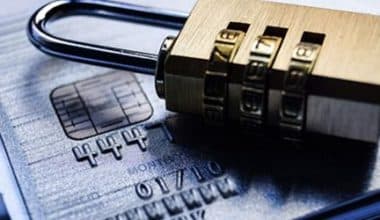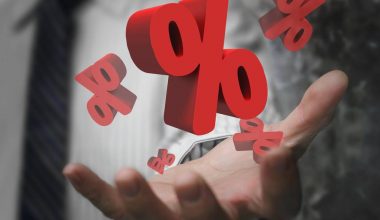If you’ve never had a debt go into collection, it can be a frightening experience. You’ve heard the warnings about getting a black mark on your credit report, getting calls from bill collectors, and your credit score plummeting. While all of it is true, there are various steps you may take to get out of debt and pay off collections. You can also pay off your collections online through an online agency. Here we have a step-by-step guide on how to pay off collections.
What Is Debt Collection?
Debt collection is a word used to describe a corporation whose sole job is to persuade people to pay money owed to a creditor.
Debt collection organizations typically pursue debtors by sending letters and making phone calls. They are employed by businesses seeking to recover money owed to them. Many businesses lack the resources and patience to pursue payments forever. In most cases, they will try to collect money outstanding for a few months before turning the bill over to a debt collection business.
When Does a Debt Go to Collections?
When a debt goes past due, the corporation you owe the debt to will begin contacting you in an attempt to urge you to make a payment. If you do not answer or pay within a particular time frame, the corporation will convert your account to a collections account. Debt can be collected as early as 31 days.
Even if your account goes into collections after 30 days, it may still be kept by the company for another month or two. At the three-month point, it may be turned over to a collections agency. Some companies will even wait five or six months before going to collection. However, you are unlikely to obtain much more time than that.
The Most Common Types of Debts Collectible
While technically any debt can be collected, the following are some of the most typical types of consumer debt:
- Debt from student loans
- Medical bills from doctors and hospitals
- Credit card debt
- Auto and payday loans, cell phone bills, personal loans, and other forms of debt are all possible.
How to Pay Off Collections Debt
Follow these methods to pay off a debt that is in collections.
#1. Verify that the debt is yours.
Make no payments to a collection agency until you have confirmed that the debt is yours. Check your records to make sure the stated balance is true. Contact your original debtor to check you’re working with the correct collection agency.
Because mistakes happen, ensuring that the debt is yours is a critical first step. Is it possible that the debt is not yours? Send a letter of dispute to the debt collector within 30 days of their contact with you. When a debt collector receives a dispute letter, they must cease collection efforts until they can send a written confirmation of the debt, such as the original bill.
#2. Research the statute of limitations in your state.
Each state has its own statute of limitations, which establishes a maximum time restriction for actively collecting on a debt. However, in some places, you can revive the debt by contacting the collection agency or making a partial payment.
Before proceeding, confirm your state’s rules and ensure that the debt has not been canceled through bankruptcy or other means.
#3. Understand your debt collection rights.
Debt collectors are limited in how they can engage with you under the Fair Debt Collection Practices Act (FDCPA). They can’t call between 9 p.m. and 8 a.m., they can’t contact you at work unless you tell them not to. Also, they can’t inform anybody else, such as a coworker, about your debt. They are also not permitted to harass, threaten, or verbally abuse you.
Remind debt collectors of the FDCPA if they violate these regulations. You can also report a complaint with the Consumer Financial Protection Bureau (CFPB) online or by calling 855-411-2372.
#4. Determine how much you can afford to pay.
Before selecting how to pay off your debt, you should analyze your budget and finances to determine how much you can afford to pay. Examine your monthly cash flow to see how much you can spend toward debt repayment or debt settlement. Revising your budget is needed to cut back on unnecessary expenses such as streaming subscriptions or cable bundles.
#5. Request that your account be deleted.
If you can afford to pay a significant lump sum, you can request that the collections agency remove the debt from your credit report. If the debt collector refuses, you might ask that it be marked as “paid in full.”
Either of these modifications will raise your credit score and make it easier to apply for a new loan. Not all collection agencies will agree to this swap, but it’s never a bad idea to ask.
#6. Make a payment plan.
If you are unable to pay a large lump sum, you might request that the collections agency devise a payment plan that you can afford. You must agree on the number of payments required before the debt is considered satisfied.
Medical debt negotiation
If you have medical debt, you may be able to work directly with the provider to negotiate interest-free payments. First, call the billing office to see if you qualify for any programs that will remove or reduce the balance.
Then, inquire about your repayment alternatives. If you aren’t getting anywhere, request to talk with management.
#7. Send in your money
You will make your payment once you and the debt collector have reached an arrangement in writing to pay off the debt. Sending a check through the mail with a return receipt is the most secure way to pay debt collections agency. This will demonstrate that the collection agency accepted the check. An electronic receipt costs $1.85 and a postal receipt costs $3.05. These receipts will be useful if the collection agency says you did not make a payment.
#8. Everything should be documented.
Borrowers must be meticulous about documentation while dealing with debt collectors. Write down the agent’s name, contact information, and what you discussed as soon as you begin speaking with a collection agency.
If you agree to a settlement with specified terms, have them deliver you a written copy of the agreement. Even if they orally agreed to it, you may have difficulty getting them to erase the account from your credit report without a written contract.
Be wary of debt collection scams.
Debt collection schemes exist, and scammers may exploit your debt anxiety to force you to pay. Be wary of alleged debt collectors who conceal information, phone late at night, threatening jail time, or beg you to pay using a prepaid card.
Confirming both your debt and the collection agency’s claim to your payments goes a long way toward safeguarding you from potential fraud. Never allow anyone else to have access to your bank account. Pay with certified checks instead, and preserve precise records of your payments with your original agreement.
If you believe a debt collector has broken the law, report the Consumer Financial Protection Bureau. You can also use them in federal court within one year of the incident.
What To Do After Making Your Final Payment?
When you conclude your payment plan or pay the lump sum, get a letter of completion from a firm signatory from the collection agency. Then, check your credit reports to ensure that the account has been updated correctly — but keep in mind that changes may not be shown for 30 days. Even once everything has been properly updated, maintain your records in a safe place in case any problems develop later.
What to Do If You Discover Your Debt Is in Collections?
Before you do anything else after finding that your debt is in collections, take a big breath. There’s no need to panic or make hasty decisions when there are numerous solutions available. It’s time to take control of the situation.
#1. Do Not Ignore Your Debt
You may be tempted to disregard the seemingly never-ending phone calls and mailings from debt collectors. Ignoring the debt, on the other hand, will not make it go away—in fact, it may make matters worse. As a result, your best bet is to acknowledge and address the debt. This can assist to calm your nerves and protect your credit.
#2. Make contact with the creditor.
If your debt has just been past due for a few months, debt collection will most likely be handled by the creditor—for example, your credit card company or the bank where you acquired your car loan. You should deal with the creditor before your debt is transferred to another company. If the creditor is unable to collect from you, the debt may be sold to a debt collection agency or another organization. Once the debt is transferred by the creditor, it may be sold and moved from one debt collection company to another.
#3. Put an end to the phone calls and letters.
Consider requesting that the debt collector cease contacting you. This could alleviate the stress associated with answering debt collector phone calls or opening the mailbox to find a threatening letter. In most cases, if you submit a written request, a debt collector must stop contacting you, except to acknowledge that it will stop contacting you or to inform you that you are being taken to court.
Stopping collection calls and mailings, however, will not make your debt disappear. Your debt in collections can still be reported to credit bureaus, and the debt collector can still sue you to recover its money.
#4. Make an attempt to reach an agreement.
When a debt is in collections, the creditor or debt collector’s primary purpose is to recover all or a portion of the money owed. As a result, you might try to negotiate a way to pay off the debt, such as making a lump-sum payment or agreeing to a long-term payment plan.
Before making a settlement offer, determine how much you can afford to pay, either all at once or over time. Then, pitch your proposal to the debt collector. For example, you could recommend paying off two-thirds of the $4,000 total on a credit card or the remaining $2,000 balance on a personal loan over a period of 24 months.
Before you hand over any money, make sure you know who you’re supposed to pay. You will transfer your money to the original creditor if they still own the debt. If your debt was transferred over to an outside entity by the original creditor, you must pay that company.
#5. Consider Hiring an Attorney
If the debt collector has threatened to sue you, you may want to hire a lawyer to represent you in court. The debt collector will not contact you once you appoint an attorney to represent you. Instead, your lawyer and the debt collector will communicate alone.
#6. Seek the Assistance of a Credit Counseling Service
Assume the debt collector has not sued you. In this case, you might wish to seek help from a non-profit credit counseling agency. The organization can assign you a professional credit counselor who will develop a repayment plan as well as a household budget to help you get back on track financially.
How to Handle Debt Collectors
Debt collectors can be bothersome and frightening, but there are steps you can take to get some control over the situation. The Fair Debt Collection Practices Act, a federal statute, limits how debt collectors deal with you.
Aside from the option to request that a debt collector stop phoning or emailing you, you also have the following rights:
- A debt collector cannot be aggressive, misleading, or unjust when attempting to collect money from you under the Fair Debt Collection Practices Act. A debt collector, for example, isn’t allowed to yell four-letter insults at you over the phone or threaten you with jail time if you don’t pay up.
- A debt collector may not phone you before 8 a.m. or after 9 p.m., according to the law. You can, however, give a debt collector authorization to contact you outside of certain hours.
- Debt collectors are not permitted to contact you at work if your company does not allow you to take phone calls.
- If you suspect a debt collector is violating the law, make a complaint with the federal Consumer Financial Protection Bureau or contact the consumer protection authority in your state.
Do You Have to Report Paid Collections to Credit Bureaus?
You are not required to notify the three major credit bureaus—Experian, TransUnion, and Equifax—after you have paid off or settled debt that has been in collections. That’s because the debt collector is required to report the wiped-out debt to the credit bureaus, who would categorize it as “paid” or “settled.”
What if the debt collector fails to notify the credit reporting agencies that your debt has been paid or settled? File a dispute with the credit bureaus to have your credit report amended.
What Effect Does Paying Off Debt in Collections Have on Credit?
Collection accounts can have a negative impact on your credit score, but paying off or resolving debt in collections may not enhance your credit score. Collection accounts with a zero balance are ignored by newer credit scoring models, although they are considered by older credit scoring models. This means that while paid-off or settled collection debt may raise your credit score under newer scoring models, paid-off or settled debt may not raise your credit score under earlier scoring models.
Because you won’t know which credit scoring model or models your future lenders will use, it’s impossible to determine whether paying off a collection account will help you achieve better credit conditions.
A collection account will be on your credit report for seven years from the day the debt became past due. The collection account is automatically erased from your credit report when the seven-year window expires. Unfortunately, a paid-off or settled collection account cannot be erased from your credit report before the seven-year period expires.
How can I remove collections from my credit report without paying?
There are two basic methods for removing collections from your credit report without paying for deletion. After you have entirely paid off the debt, you may:
- Send a goodwill letter to the creditor or collector requesting forgiveness and removal.
- Write a proper dispute letter in which you contest the collection if it is not legitimate or is too old to be on your record.
How can I Pay Off Collections Online?
Before agreeing to pay off the debt in collections online, you should first confirm that the debt is yours and that the collector is legitimate. Then, the most secure way to pay off collections online is to use your bank’s online bill pay service. It’s more secure than sending your information to collectors by ACH transfer or personal check. You should also avoid methods like paying using a credit card, which essentially transfers your debt to a new account.
How Do I Acquire a Loan to Pay Off My Collections?
Certain lenders may refuse to make loans to those who have an existing account in collections, but others may be more accommodating. Taking out a loan to pay off collections debt will save you fees, interest, and damage to your credit score. Determine what sort of loan you are eligible for, prequalify to determine how much you may get, and apply for only the amount needed to pay off the collections debt. Then, to avoid more problems, make sure you have a strategy in place to return the loan balance on time.
What Happens If My Debt is Sold to a Different Company?
Collectors frequently sell debts to other collectors. Even if your debt is sold to another entity, it is still your responsibility to pay it.
Conclusion
It is critical to begin repaying debt collectors as soon as possible. Ignoring it will only make matters worse. Whether you want to negotiate/pay a flat sum or work out a payment plan, addressing your debt can help you on the road to credit rehabilitation and financial success.
Related Articles
- AFFILIATE ASSET SOLUTIONS: 2023 Comprehensive Reviews & All You Need
- Financial Asset Management: Systems, Types & Benefits
- Managing Receivables: Policies For Receivables And Collection
- COLLECTION AGENT: Job Description, Roles & Responsibilities
- Average Collection Period (ACP): Formula, Calculations & Importance






